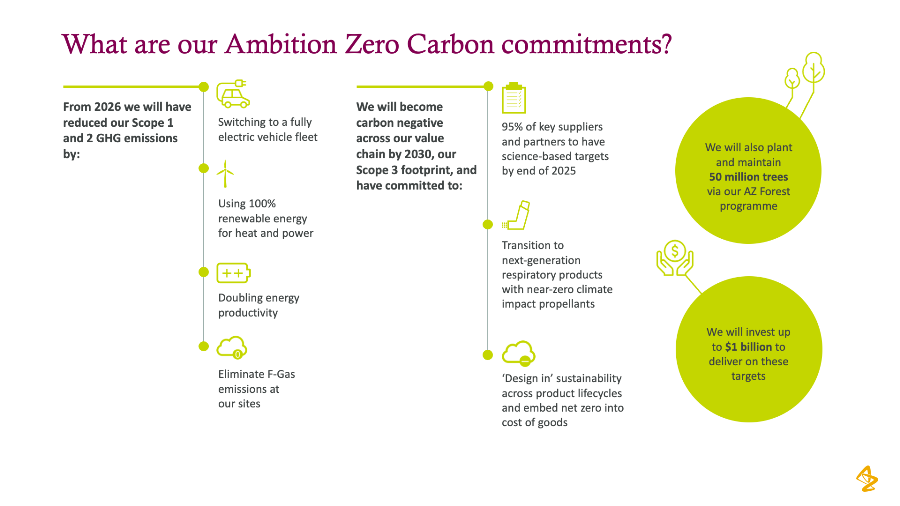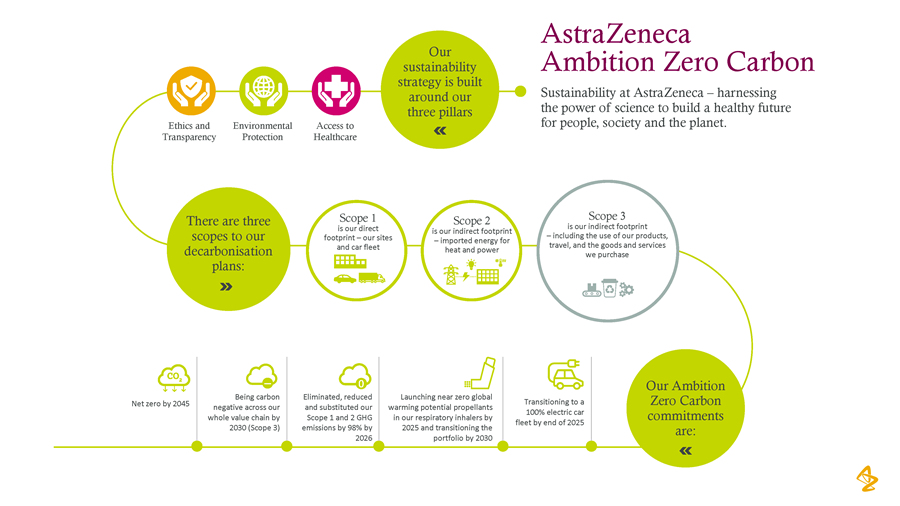Commitment
Launched at the World Economic Forum in January 2020, ‘Ambition Zero Carbon’ is AstraZeneca’s commitment to reduce greenhouse gas emissions from its global operations and fleet (Scope 1 and 2) by 98% by 2026, and halve its entire value chain footprint by 2030 on the way to a 90% reduction by 2045. By 2030, the company will go even further to become carbon negative for all residual emissions.
In meeting these targets, by 2025 AstraZeneca will double its energy productivity; use 100% renewable energy for power and heat, eliminate F-Gas emissions from its sites, transition to next-generation respiratory inhalers with near-zero climate impact propellants and plant and maintain 50 million trees under its ‘AZ Forest’ programme. AstraZeneca was the first pharmaceutical company to be a member of all three of the Climate Group’s RE100, EV100 and EP100 initiatives.
The company’s Scope 1, 2 and 3 greenhouse gas emission reduction targets have been verified by the Science-Based Targets Initiative as being consistent with reductions required to keep warming to 1.5°C, the most ambitious goal of the Paris Agreement.
Lighthouse initiative
‘AZ Forest’ – Alongside the work to eliminate carbon emissions from its operations and value chain, AstraZeneca recognises the direct link between reforestation and the impact it can have on both the climate and human health. Trees naturally remove CO2 and are essential to mitigate the effects of climate change. ‘AZ Forest’ is a reforestation initiative where 50 million trees will be planted and maintained by the end of 2025, with longer term stewardship to ensure their permanence. By the end of 2021, working with local governments and NGOs such as One Tree Planted, AstraZeneca had planted 3.4 million trees in Australia, Indonesia, Ghana, the UK and France. By the end of 2022, the company aims to have planted over eight million trees, and overall, will be collaborating with over 40,000 farmers around the world to help build ecological and community resilience.



